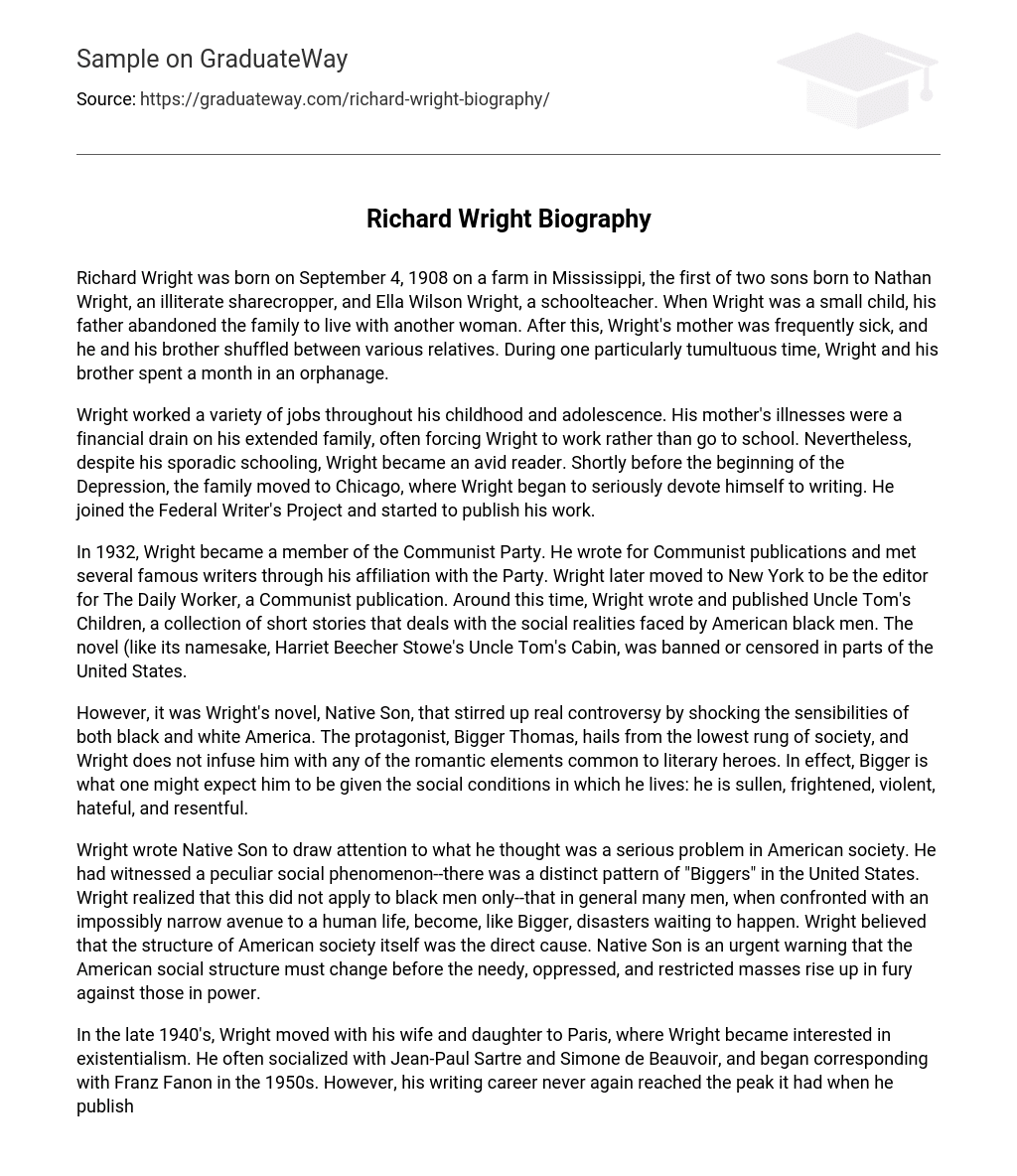Richard Wright, born on September 4, 1908 in Mississippi on a farm, was the eldest child of illiterate sharecropper Nathan Wright and schoolteacher Ella Wilson Wright. During Richard’s youth, his father abandoned the family for another woman, leading to frequent illness in his mother. As a result, Richard and his brother were constantly shuffled between various relatives and even spent some time in a temporary orphanage.
Despite facing financial strain and needing to work instead of attending school due to his mother’s illnesses, Wright developed a strong affinity for reading during his formative years. Despite having a limited education, he persevered in pursuing his love for literature. The family later moved to Chicago before the onset of the Depression, providing Wright with an opportunity to dedicate himself completely to writing. He became involved in the Federal Writer’s Project and began publishing his writings.
Joining the Communist Party in 1932, Wright wrote for Communist publications and met notable writers through his Party affiliation. He relocated to New York to edit The Daily Worker, a Communist publication. During this time, he authored and released Uncle Tom’s Children, a compilation of short stories that explored the social hardships faced by African American men in America. Like Harriet Beecher Stowe’s Uncle Tom’s Cabin, Wright’s novel also faced censorship or prohibition in specific regions of the United States.
Native Son by Wright ignited controversy in both black and white America due to its shocking portrayal. The novel’s protagonist, Bigger Thomas, hails from the lowest social class and lacks the typical romantic attributes often associated with literary heroes. Instead, Bigger personifies the traits one would anticipate given his oppressive social circumstances: he is gloomy, fearful, inclined towards violence, consumed by hatred, and harbors deep resentment.
Wright’s purpose in writing Native Son was to address a significant issue he observed in American society. He noticed a unique social phenomenon where there was a clear pattern of individuals like “Biggers” in the country. Wright acknowledged that this pattern was not exclusive to black men, but rather a common occurrence where many individuals, when faced with limited opportunities for a fulfilling life, inevitably become disasters waiting to happen, similar to Bigger. In Wright’s view, the very structure of American society itself was the root cause of this. Native Son serves as an urgent call to action, highlighting the necessity for a change in the American social structure before the oppressed and restricted masses rise up in anger against those in power.
In the late 1940’s, Wright relocated to Paris with his wife and daughter. It was during this time that Wright developed an interest in existentialism and engaged in socializing activities with notable figures such as Jean-Paul Sartre and Simone de Beauvoir. Additionally, he initiated correspondence with Franz Fanon in the 1950s. Nevertheless, Wright’s writing career never recaptured the success achieved with the publication of his renowned works, Native Son and Black Boy, which also served as his autobiography. Tragically, Wright’s life was cut short by a heart attack in 1960.
Bibliography:





